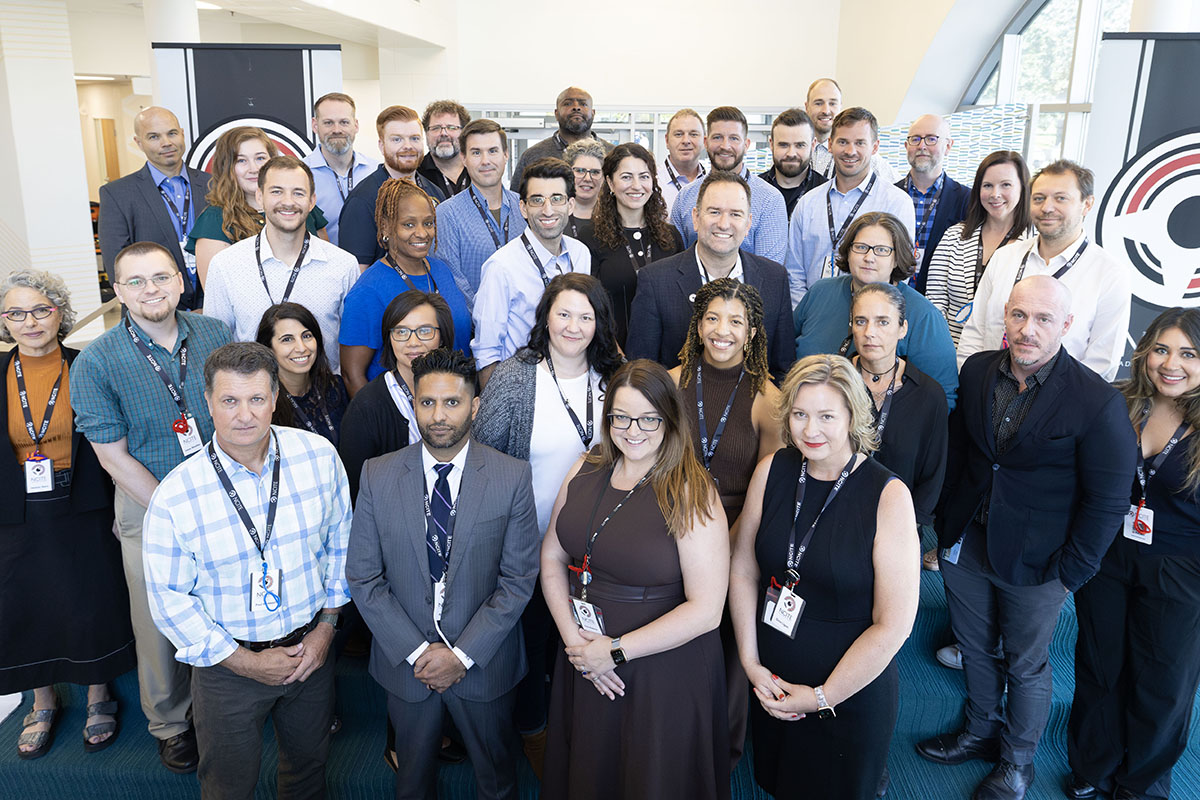Marking the Day: Reflections from NCITE on 9/11
On the 23rd anniversary of the worst terrorist attack on U.S. soil, NCITE asked researchers and practitioners gathered in Omaha for a workshop to reflect on the impact of 9/11.
- published: 2024/09/11
- contact: NCITE Communications
- email: ncite@unomaha.edu

Sept. 11 is a solemn occasion for the entire nation. But the date felt especially poignant for a room full of terrorism researchers and government practitioners gathered at NCITE on Wednesday.
This week, Sept. 11-12, NCITE hosts a group of about 50 academics and officials whose work involves violent extremism. They are gathered in Omaha for a workshop advancing research that aims to establish best practices for reintegrating formerly incarcerated violent extremists back into communities.
To mark the date, NCITE asked the group to reflect on their memories of the attacks and how they changed their lives, their work, and the world.
Gina Ligon, NCITE Director
9/11 changed my whole career path. I was in graduate school when 9/11 happened, researching how individuals lead for innovation. In February of 2002, an agency in the (U.S. government) came to my major professor and asked us to examine the leadership structure of the group who had just attacked our country. I have been trying to understand them and other groups like them ever since. It’s the greatest honor of my life to have built an organization dedicated to the study and prevention of terrorism like we saw in the United States on 9/11.
Jessica Stern, Boston University
On 9/11, we saw the country pull together. The number of people who came into the field motivated to protect others was powerfully moving. Some of our responses, such as the war in Iraq, turned out to be counterproductive in many ways. But today, I'd like to focus on how we came together, and the possibliity we can come together as a nation again after a period of extreme division.
Michael Cronin, U.S. Probation, Eastern District of New York
Being born and raised in Brooklyn, NY, 9/11 gave me a first-hand account of how devastating a terrorist attack can be on such a large population. I knew at eight years old that I eventually wanted to work in this specific field in law enforcement.
Austin Doctor, NCITE Head of Counterterrorism Research Initataives
During a visit to New York City in 2000, I remember being gobsmacked by the Twin Towers, the scale of which was accented by my vantage point on the sidewalk pavement. My aunt and I had swung by the World Trade Center complex on our way to see my uncle, who worked in another building in the Financial District.
A year or so later, stuffed into the minivan and en route to the Kansas State Fair in Hutchinson, our family heard that the first tower was hit. My mom peeled the car around for home. We huddled in my grandparents’ living room, silently tethered to the live news feed — no one had been able to get ahold of my uncle. My grandmother had quiet tears running down her cheek. Her face was matte white.
It was hours before we heard that my uncle was safe. In that time, both towers had collapsed and thousands of Americans had died.
9/11 was my first experience with the kind of lethal, ideologically driven violence that now serves as the core of my research and career focus. The threat of another large-scale terrorist attack in the U.S. remains regrettably real. I am privileged to work alongside my colleagues at NCITE to peer over the horizon, make sense of emerging terrorism threats, and advise on evidence-based solutions to these challenges. To keep Americans safe from terrorist violence.
Sam Hunter, NCITE Head of Strategic Initiatives
How did 9/11 change you? – It taught me, at a relatively young age, that safety and security are not to be taken for granted. We CAN be safe and secure, but it takes vigilance, care, and effort.
How did 9/11 change the world? – 9/11 happened in many ways around the dawn of the internet, or at least the early days of widespread application. We were slowly becoming more globally minded given these new abilities to connect across the globe. The attack compounded that sentiment, reminding everyone that threats are not localized and as the world got smaller, the threat landscape also became more complex. Threats against the U.S. were also seen as an attack against our allies and our democratic way of life.